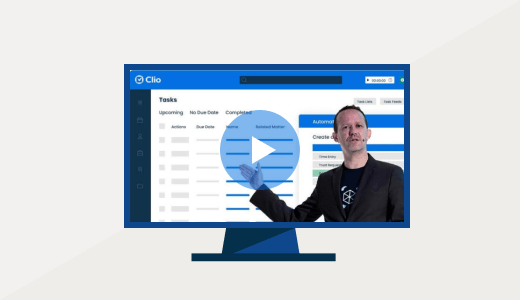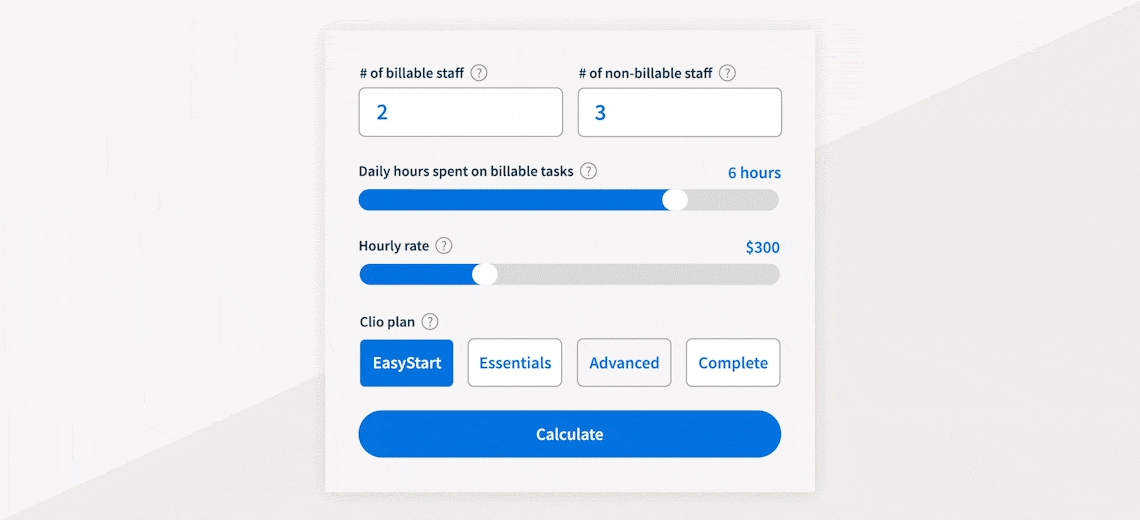Features of Clio’s solo law software
-
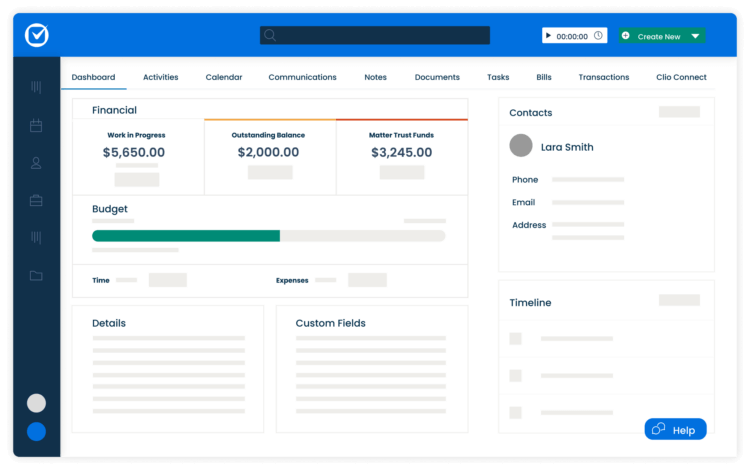
Focus on the work that’s important to you
- Capture every billable minute with time and expense tracking.
- Work from anywhere with secure, cloud-based software solo law practice management software accessible on mobile or desktop.
- Manage everything in one place by integrating your favorite tools with Clio.
- Close more cases—faster—using solo law practice software automated document management.
-
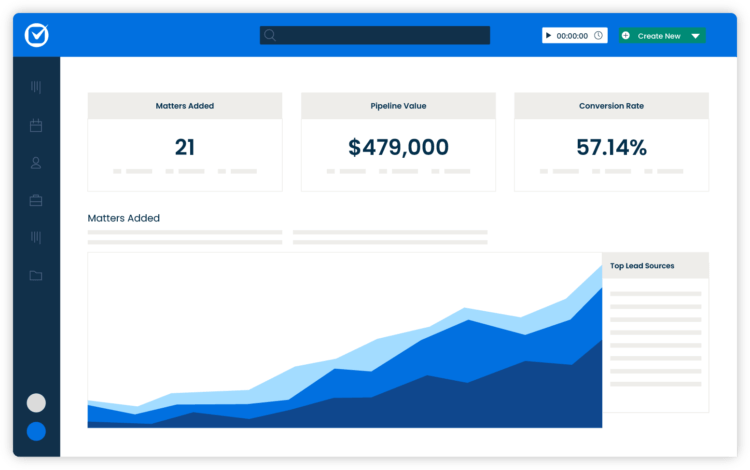
Boost your firm’s bottom line
- Remove administrative tasks and associated overhead with automated end-to-end billing—so you can focus on billable work.
- Get paid faster and collect more with online or in-person payments, reducing the delay between issuing an invoice and getting paid.
- Know your firm’s health with accurate financial reporting and data insights.
-
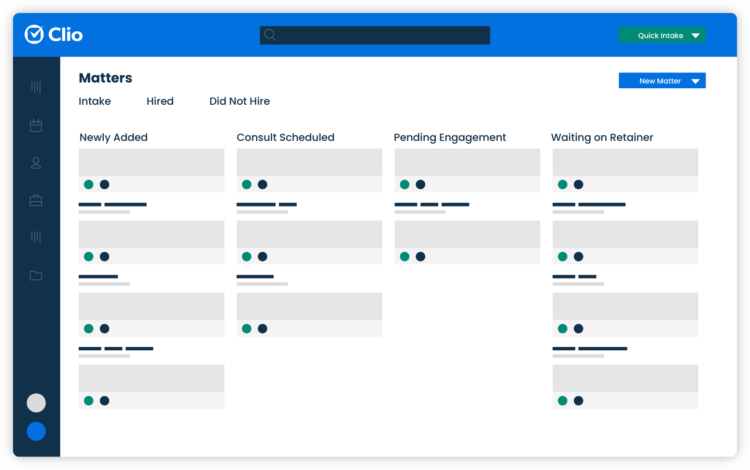
Track and acquire new business
- Generate new business with Clio’s powerful legal client relationship management (CRM) software.
- Simplify the client intake process with automated appointments, welcome emails, and document requests.
- Offer new clients flexible ways to engage with your firm—like online portals, e-signatures, alternative fee arrangements, and more.
-

Stay current on the latest tech, industry trends, and events
- Broaden your tech skills and knowledge with access to Clio Academy, Clio events, and more.
- Stay up-to-date with the latest insights from our annual Legal Trends for Solo and Small Law Firms report.
Solo law software reviews
Solo Law Software FAQs
How can software for solo law firms assist with increasing billing?
Solo lawyer software helps increase billing by setting you up to spend more time on billables and less time on administrative work. Features like Clio Payments also help streamline payment and collections, ensuring you get paid faster and collect more of what you bill. See how much your firm could save with Clio with this calculator.
How do I choose a solo law software?
The needs of solo lawyers differ from that of big law firms, and your law firm software should be designed with this in mind. Selecting the best law practice management software for solo lawyers is simple once you understand your specific needs.
Because solo lawyers have limited time for chasing payments, choosing software with a powerful time and expense tracking feature is important. Solo law businesses may also prioritize automating other administrative duties to make more time for billable tasks. Thankfully, Clio’s software is also scalable, growing with you as your needs and your business expand.
What law practice management software is the best for a solo?
Clio is widely considered the leading case management solution with a rating of 4.5/5 or higher on G2 Crowd, SoftwareAdvice.com, Capterra, and Lawyerist.
Our software is also trusted by over 150,000 legal professionals and approved by over 100+ bar associations and law societies worldwide.
It is the go-to solution for solo lawyers thanks to integrating with tools you are using, billing automation, and improved collaboration, as well as outstanding customer support.
What is the best legal software for solo lawyers?
The best legal software for solo lawyers saves them time and manual effort, allowing them to work smarter and focus on growing their firm, while at the same time reducing the risk of error and missed deadlines. Practice management software is key.
What is solo lawyer software?
Solo law practice management software is a platform to help independently working lawyers manage and organize their practice. From document storage to automated end-to-end billing, this software will help you focus on your clients and their needs while spending less time on administrative work. .
What software do solo law firms use?
Solo lawyers typically use a few different types of software to run their firms. Your chosen legal software suite is the central and most important piece of the tech stack, but lawyers also use accounting software, such as QuickBooks Online or Xero, document software such as Microsoft Word, and an email provider such as Microsoft Outlook or Gmail. Solo practitioners may also use tools like virtual receptionists or virtual assistants to help manage administrative work.
For solo lawyers, it’s best if all your tools integrate and share case and contact information, to reduce workload and risk of error. The Clio App Directory has over 200 integrations to explore, so you can find out how it will integrate with the tools you are currently using.
How do I use solo lawyer software?
With Clio Academy, you have access to a free, flexible training program to help you with the onboarding process and any ongoing questions you may have. You can also speak directly to one of our friendly support staff via email, live chat, or phone 24/5.
Resources for solo lawyers

Book a Live Demo
Book a live demo to see how Clio can help your law firm maximize efficiency and increase revenue
Try Clio for Free
Try Clio’s legal software free for 7 days with no obligation. Easy setup. No credit card required. Cancel anytime




